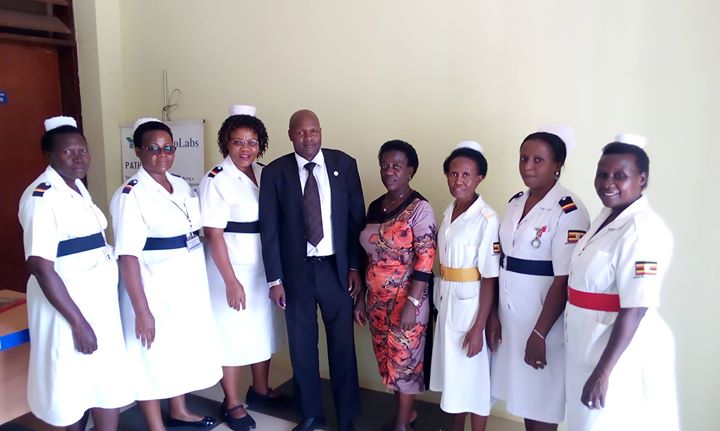
KAMPALA – Nurses have threatened to abandon patients should government fail to fulfill its promise of increasing their lunch allowances and providing them with accommodation.
Addressing journalists on Wednesday, Mr Justus Cherop Kiplangat, the president of the Uganda Nurses and Midwives Union (UNMU), said they have patiently waited for the government’s pledge in vain.
“This lack of commitment by the government to fulfill its promises has continued to demoralize us as health workers. We have reached out to several government organs to have the nurses’ welfare improved but in all in vain,” said Mr Cherop in Kampala.
In 2017, the government promised to increase the daily allowance for nurses and midwives from the current Shs2,000 to Shs15,000.
“The Shs2000 we get can only buy a meal of chapati and beans which is not decent yet we spend at least eight hours on duty. The quality of care we give to patients risks being compromised if our welfare is not improved,” said Ms Milly Nakintu, a nurse and member of UNMU.
Mr Cherop said starting September, members will set aside an hour and a half from their schedules to go out to look for lunch if government has not fulfilled its promise of increasing their lunch allowances.
The nurses asked government to look into their accommodation issues, arguing that the accommodation facilities at the hospitals and health centres where they operate are not enough whereas others are in a sorry state.
“Those of us working for evening hours begin work at 2 pm and leave between 10 and 11 pm yet most of us stay in distance places. Transport challenges then affect us. Government ought to look into our predicaments,” Ms Nakintu said.
Mr Ram Samson Andua, a nurse at Arua regional referral hospital, said over 80 percent of his colleagues stay outside the hospitals where they work and always get challenges of transport.
“There are always emergencies like accident victims and mothers giving birth and in such situations, we have to return to work to assist but it is risky because we stay far away from the hospitals,” Andua said.
The nurse said sometimes they lack money for transport and end up walking to hospitals to attend to emergencies, a thing he said ought to change for the better.
“Our work is like that of the police officers and soldiers but they sleep in barracks. Why don’t we, just like those two groups be given decent accommodation at places of work?”




